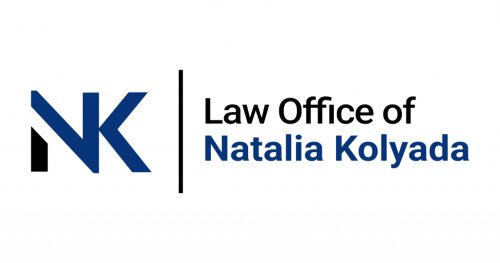Best Communications & Media Law Lawyers in Georgia
Share your needs with us, get contacted by law firms.
Free. Takes 2 min.
Or refine your search by selecting a city:
List of the best lawyers in Georgia, United States
About Communications & Media Law in Georgia, United States
Communications and Media Law in Georgia covers the legal landscape that governs how information is created, distributed, and consumed in the state. This area of law addresses various issues related to telecommunications, broadcasting, publishing, advertising, and digital media. It involves regulations set by federal agencies such as the Federal Communications Commission (FCC) as well as state-level statutes and local ordinances. These regulations are designed to protect free speech, support access to information, maintain fair competition, and address privacy and defamation concerns. Understanding Communications and Media Law is crucial for individuals and organizations involved in creating or sharing information within Georgia.
Why You May Need a Lawyer
There are several situations in which you may need a lawyer with expertise in Communications and Media Law in Georgia. These include:
- You are facing a defamation, libel, or slander claim related to published content, whether online or printed.
- Your business needs to comply with FCC regulations for radio, television, or telecommunications services.
- You are the victim of unauthorized use of your copyrighted content or require assistance with intellectual property matters related to media content.
- You have concerns about privacy violations in communications, such as the unauthorized release of private information.
- You face legal issues around advertising compliance or deceptive marketing claims.
- Your organization is preparing to launch a new digital product or media outlet and needs to navigate applicable state and federal laws.
- You have received a cease-and-desist letter or subpoena related to online speech, posts, or media uploads.
- You are interested in understanding your rights or obligations regarding freedom of speech and press in Georgia.
Local Laws Overview
While many aspects of Communications and Media Law are regulated federally, Georgia has specific statutes and court decisions that affect media organizations, journalists, businesses, and individuals. Key considerations include:
- Defamation Law: Georgia law distinguishes between public figures and private individuals in defamation claims, and sets specific standards for proving actual malice or negligence.
- Shield Laws: Georgia has a reporter's privilege law offering limited protection for journalists against being forced to reveal confidential sources, though exceptions apply.
- Freedom of Information: The Georgia Open Records Act and Open Meetings Act ensure government records and meetings are accessible, with certain exemptions for privacy and security.
- Privacy and Eavesdropping: Georgia law restricts the unauthorized recording of private conversations and recognizes certain rights to privacy.
- Consumer Advertising: The Georgia Fair Business Practices Act governs truth-in-advertising standards and deceptive practices affecting consumers in both traditional and digital advertising.
- Broadcasting and Telecommunications: Local and state regulations supplement federal rules covering cable franchises, local zoning for communications towers, and emergency alert systems.
Frequently Asked Questions
What is considered defamation under Georgia law?
Defamation in Georgia is a false statement communicated to a third party that damages the reputation of an individual or business. For public figures, the plaintiff must also prove actual malice. Truth is a complete defense to defamation claims.
Can I record conversations in Georgia without permission?
Georgia is a one-party consent state, which means you can legally record conversations if you are a participant or have the consent of at least one of the parties involved. Recording conversations without consent when you are not a participant is generally illegal.
Are online comments and social media posts protected as free speech?
Online speech is generally protected by the First Amendment, but there are limits. Speech that is defamatory, constitutes a true threat, or invades privacy is not protected.
How can I file a complaint about deceptive advertising in Georgia?
Consumers can file complaints with the Georgia Department of Law’s Consumer Protection Division if they believe they have been misled by false or deceptive advertising practices.
Do bloggers and online publishers have the same legal rights and responsibilities as traditional journalists in Georgia?
In many cases, online publishers and bloggers are subject to similar defamation, privacy, and copyright rules as traditional media. Some legal protections, such as shield laws, may be interpreted differently by courts.
What protections do journalists have for confidential sources in Georgia?
Georgia’s reporter’s privilege law offers some protection for journalists seeking to withhold the identity of confidential sources, though courts may compel disclosure in certain circumstances, especially in criminal cases.
How does copyright law apply to content created and shared in Georgia?
Copyright law is federal, but Georgia courts hear cases involving infringement of creative works produced, distributed, or accessed within the state. Using copyrighted materials without permission can lead to significant civil liability.
What should I do if I receive a cease-and-desist letter regarding my online content?
You should not ignore the letter. It is recommended to seek legal advice to assess the merits of the claim and determine your available defenses or next steps.
Is political advertising regulated differently in Georgia?
Political advertising is subject to both federal and state election laws. Requirements for disclaimers, reporting, and transparency apply, and false claims can result in penalties.
Can I access government records and proceedings in Georgia?
Yes, under the Georgia Open Records Act and Open Meetings Act, most government records and meetings are open to the public, with certain exceptions for sensitive information or security concerns.
Additional Resources
For those seeking more information or assistance with Communications and Media Law matters in Georgia, consider the following resources:
- Georgia Department of Law - Consumer Protection Division: Oversees consumer rights, advertising issues, and complaints.
- Georgia First Amendment Foundation: Provides education and advocacy regarding freedom of speech and press.
- Federal Communications Commission (FCC): Regulates interstate communications by radio, television, wire, satellite, and cable.
- Reporters Committee for Freedom of the Press: Offers legal resources for journalists and media professionals.
- Georgia Press Association: Supports working journalists and publishers in the state with training and legal updates.
- Georgia Secretary of State: Maintains election, political advertising, and business regulations relevant to media law.
Next Steps
If you need legal assistance regarding Communications and Media Law in Georgia, start by identifying your specific issue and gathering related documents or correspondence. Consider reaching out to an attorney who specializes in communications, media, or First Amendment law. Many lawyers offer initial consultations to discuss your case and recommend an approach. For straightforward complaints, such as consumer advertising issues, you may file directly with relevant state agencies. Always act promptly, as there may be legal deadlines that apply to your situation. If your issue involves complex or evolving digital media law, look for attorneys with proven experience in online content and technology law. Remember, early legal advice can help prevent costly or irreversible mistakes.
Lawzana helps you find the best lawyers and law firms in Georgia through a curated and pre-screened list of qualified legal professionals. Our platform offers rankings and detailed profiles of attorneys and law firms, allowing you to compare based on practice areas, including Communications & Media Law, experience, and client feedback.
Each profile includes a description of the firm's areas of practice, client reviews, team members and partners, year of establishment, spoken languages, office locations, contact information, social media presence, and any published articles or resources. Most firms on our platform speak English and are experienced in both local and international legal matters.
Get a quote from top-rated law firms in Georgia, United States — quickly, securely, and without unnecessary hassle.
Disclaimer:
The information provided on this page is for general informational purposes only and does not constitute legal advice. While we strive to ensure the accuracy and relevance of the content, legal information may change over time, and interpretations of the law can vary. You should always consult with a qualified legal professional for advice specific to your situation.
We disclaim all liability for actions taken or not taken based on the content of this page. If you believe any information is incorrect or outdated, please contact us, and we will review and update it where appropriate.
Browse communications & media law law firms by city in Georgia
Refine your search by selecting a city.











